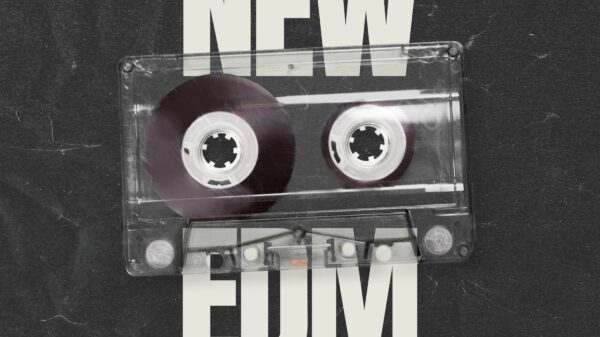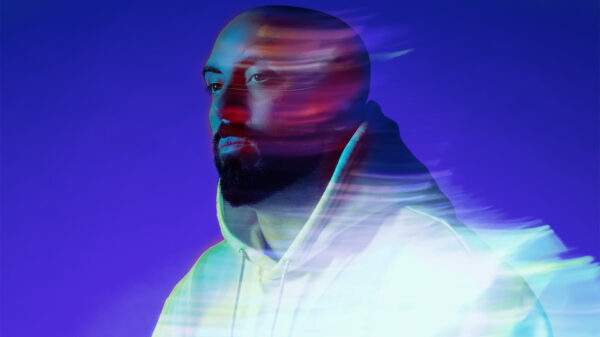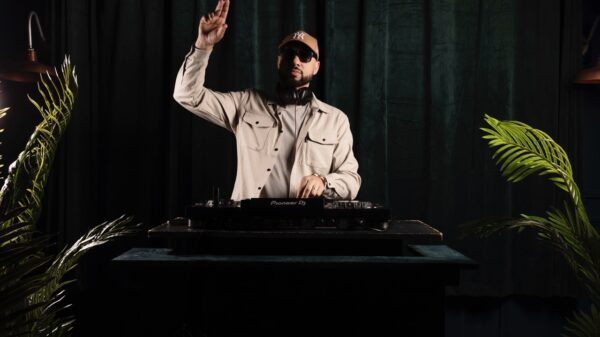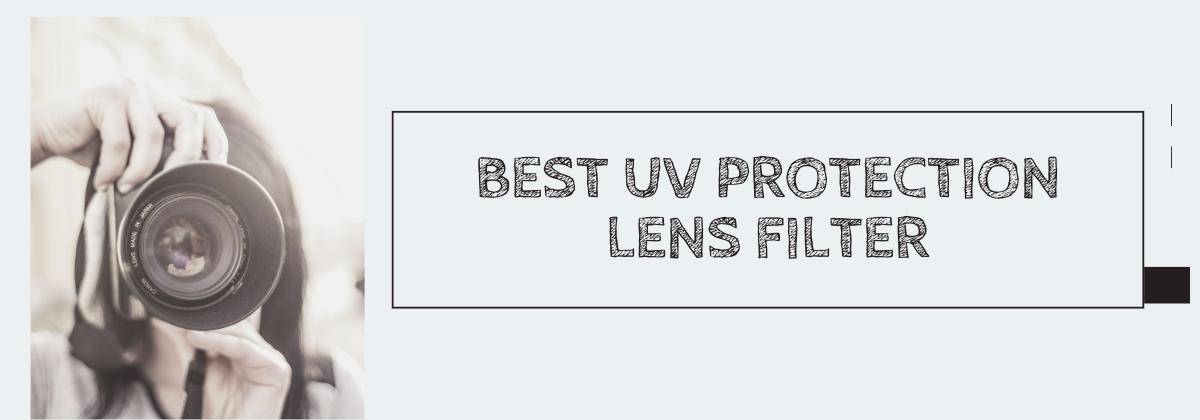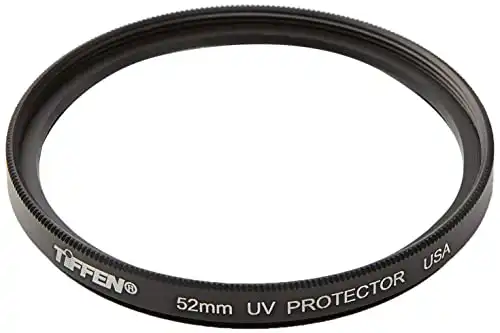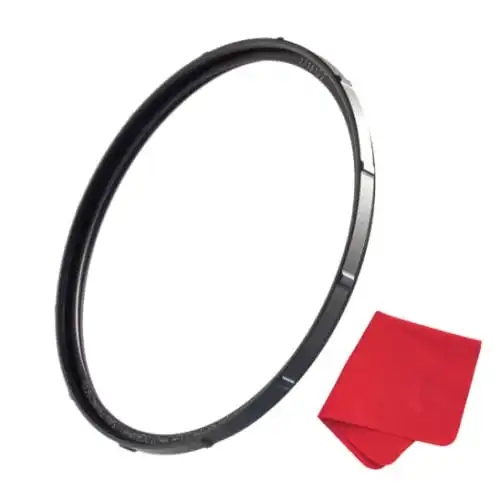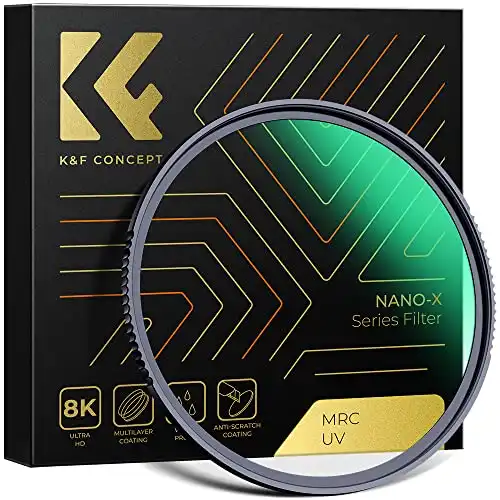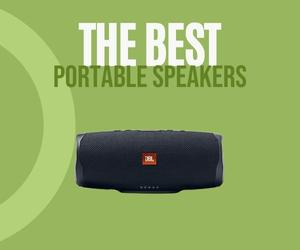Camera lens filters are an important piece of gear for any photographer. They protect the camera lens from scratches, dirt, and other damage. But not all lens filters are created equal. Some offer better protection than others. So, which is the best UV protection lens filter for protecting your camera?
In this article, we'll take a look at the best UV protection lens filters available, and help you choose the right one for your needs.

What is a UV Protection Lens Filter?
A UV protection lens filter is a clear filter that attaches to the front of your camera lens. It blocks ultraviolet (UV) light from reaching the lens. This prevents the UV light from damaging the lens, and it also reduces haze and improves contrast.
Why Use a UV Protection Lens Filter?
There are several reasons to use a UV protection lens filter. First, it helps protect your camera lens from damage. Second, it can improve the quality of your photos by reducing haze and increasing contrast. And third, it can help you save money in the long run by preventing expensive lens repairs.
5 Best UV Protection Lens Filters
After hours of research, we've compiled a list of the best UV protection lens filters available today based on price, features, and customer reviews. Here's a quick overview of our top picks:
1. Amazon Basics UV Protection Camera Lens Filter
- UV protection filter for general, everyday use
- Reduces ultraviolet light; helps eliminate bluish cast in images
- Protects lens from dust, dirt, and scratches
If you're like most photographers, you want to protect your camera lens from dirt, dust, and scratches. And one of the best ways to do that is with a UV protection filter. The Amazon Basics UV Protection Camera Lens Filter is a great option for general, everyday use. It helps reduce ultraviolet light and eliminates the bluish cast in images.
Plus, it protects your lens from dust, dirt, and scratches. The Amazon Basics UV Protection Filter is the most popular protection filter and is ideal for outdoor photography. It measures 77mm in diameter and is available in 58mm, 67mm, 72mm, and 82mm sizes. So, no matter what camera you have, there's a size that will fit.
Pros
- Protects your camera lens from dirt, dust, and scratches
- Reduces ultraviolet light
- Eliminates the bluish cast in images
- Available in a variety of sizes
- Affordable
Cons
- You get what you pay for
2. Tiffen 25-86mm UV Protection Filter
Tiffen UV Protection Filter is a great option if you're looking for a basic way to reduce ultraviolet light and eliminate the bluish cast in your images. This filter is one of the most popular protection filters on the market, and it's easy to see why. It's designed to fit 52mm diameter lenses, and it provides a basic level of UV protection without affecting image quality.
Plus, it's relatively affordable, making it a great choice for budget-conscious photographers. Whether you're shooting landscape or portrait photography, this Filter is a great way to protect your investment.
Pros
- Provides basic UV protection
- Reduces bluish cast in images
- Easy to use
- Affordable price
Cons
- It may not fit all lenses (check filter size before purchasing)
3. B + W 30.5-105mm UV Filter
If you're a photographer, then you know how important it is to protect your camera lenses. UV filters are a great way to do that. They add 16 multi-resistant Nano-coating layers of protection against things like dirt, dust, scratches, and more.
Plus, they help to eliminate the blue cast from your pictures. And with the XS-Pro mount, they're easy to install. Made in Germany by Schneider Kreuznach, a company with over 100 years of experience in precision mechanics, optics, and filters, this filter is sure to help you take clearer crisper images. Thanks to its multi-resistant Nano coating, it's also built to last.
Pros
- 16 multi-resistant nano-coating layers of protection
- Eliminates blue cast
- XS-Pro mount for easy installation
- Made in Germany by Schneider Kreuznach
- Built to last
Cons
- Pricey over years
4. X1 UV Filter for Camera Lenses
A camera UV protective filter is one of the most important pieces of equipment for any photographer. A good filter can protect your lens from lens flare, scratches, dirt, and other debris. It can also help to reduce glare and increase contrast.
The X1 UV Filter for Camera Lenses is a top-of-the-line filter that offers all of these benefits and more. Made in Japan from high-quality glass, features four layers of MRC coatings that reduce flaring and ghosting. Its slim, double-threaded design eliminates vignetting on wide-angle full-frame setups, and its weather-sealed construction ensures that your lens is protected from the elements.
With its all-new filter design, this is easier than ever to install and remove. Whether you’re a professional photographer or a hobbyist, the X1 UV Filter for Digital Cameras is an excellent choice for protecting your investment.
Whether you're a professional photographer or an amateur shutterbug, your camera lens is one of your most important pieces of equipment. It's constantly exposed to the elements, and it's crucial for capturing high-quality images.
A UV filter is a must-have for protecting your lens against dirt, dust, and other airborne particles. It's also useful for reducing glare and unwanted reflections. This Filter is a top-of-the-line option for camera lens protection. It's made of durable, shatterproof glass and features a unique serial number that is registered to you upon activation of your 25-Year Ironclad Guarantee.
Pros
- Reduces glare and reflections
- Eliminates vignetting
- Reduce flaring and ghosting
- Slim, double-threaded design
- Weather-sealed construction
- 25-Year Ironclad Guarantee
Cons
- Dust adheres easily
5. K&F Concept UV Filter
UV filters absorb UV rays and reduce the blue tone in images caused by UV, giving you clearer and more vibrant photos. They also protect your lens from dust and scratches, keeping it in pristine condition.
K&F Concept UV filters are made with Japanese AGC glass for razor-sharp images, and they have 28 multi-layer coatings for reduced reflection and enhanced color.
The frame is only 3.3mm thick and is made with double-side polishing technology for clear images. Like Gobe UV Lens Filter, it is also compatible with a variety of lens sizes. Verify your camera's lens thread size before choosing the right filter for your needs.
Pros
- Reduces blue tones in images
- Protects your camera lens
- AGC Japanese glass for sharp images
- 28 multi-layer coatings
- Double-side polishing technology
Cons
- Worth the value
What to Consider When Choosing the Best UV Protection Lens Filter
When choosing the best UV lens filter, there are a few things you'll want to keep in mind.
Material
The material of the filter is important for both image quality and durability. If you want the best image quality, look for a filter made with optical glass. These filters will produce the clearest images without affecting color or contrast. For durability, opt for a filter made with shatterproof glass.
Most high-quality UV filters will have multiple coatings that help to reduce reflections and ghosting. These coatings also help to protect the filter from scratches, fingerprints, and dirt. The frame of the filter should be made from a durable material that won't corrode or rust over time.
Warranty
When investing in a high-quality UV filter, you'll want to make sure it comes with a good warranty. So that, if anything happens to the filter, you'll be covered. A manufacturer's warranty will give you peace of mind in knowing that you can get a replacement if the filter is defective.
Coating
The number of coatings on the filter is important for image quality. A minimum of seven layers is ideal, but more is always better. The coatings help to reduce reflections and ghosting, and they also make the filter easier to clean.
In addition to the number of coatings, the type of coating is also important. Look for a filter with an anti-reflective coating that will reduce reflections and ghosting. A hydrophobic coating is also beneficial as it helps to repel water and fingerprints.
Waterproof
If you plan on using your camera in inclement weather, it's important to choose a filter that is waterproof. A waterproof filter will protect your lens from rain, snow, and dust. As a result, you'll be able to keep shooting in all kinds of conditions without having to worry about your camera.
Size
The size of the filter is important for two reasons. First, you'll want to make sure the filter is the right size for your camera lens. Second, you'll want to make sure the filter doesn't vignette (darken the corners of the image). To avoid vignetting, choose a filter that is one or two sizes larger than your lens. For example, if you have a 50mm lens, you'll want to choose a 52mm or 55mm filter.
FAQ
Do you really need a UV filter for my lens?
Any photographer, amateur or professional, will tell you that one of the most important accessories for your camera is a UV filter. But what many people don't realize is that a UV filter serves more than one purpose. In addition to protecting your lens from scratches and dirt, a UV filter also helps to reduce glare and improve clarity. UV light is invisible to the human eye, but it can have a major impact on your photos. Without a UV filter, your images might appear hazy or washed out. Even worse, prolonged exposure to UV light can damage your camera's sensor over time. A UV filter offers a simple solution to these problems, and it's an inexpensive way to protect your investment. So, whether you're an experienced photographer or just starting out, be sure to pick up a UV filter for your lens.
Do UV lens filters work?
Ultraviolet light is invisible to the human eye, but it can have a powerful effect on the skin. UV rays are a major cause of skin cancer, and they can also contribute to premature aging. As a result, many people choose to wear sunglasses or hats with wide brims to protect themselves from the sun. However, UV rays can also penetrate through clouds and glass, making it difficult to avoid them completely. That's where UV lens filters come in. UV filters are designed to block out harmful UV rays, providing an extra layer of protection for the eyes. While UV filters are not foolproof, they can significantly reduce exposure to harmful UV rays. As a result, they are an effective way to help protect the eyes from the damaging effects of the sun.
Does the quality of the UV filter matter?
When it comes to keeping your skin safe from the sun, there are a lot of options out there. But one of the most important things to consider is the quality of the UV filter in your sunscreen. A good UV filter will provide broad-spectrum protection against both UVA and UVB rays. It should also be water-resistant and have an SPF of at least 30. However, not all sunscreens are created equal. Some may contain harmful chemicals or provide less than ideal protection against the sun’s rays. So, when you’re choosing a sunscreen, be sure to read the label carefully and choose one that will offer the best protection for your skin.
When not to use a UV filter?
UV protection filters are a great way to reduce glare and protect your camera lens from scratches, but there are a few situations when you shouldn't use one. For example, if you're shooting in bright sunlight, a UV filter can actually cause your photos to appear hazy or washed out. Additionally, if you're using a long lens, a UV filter can affect the autofocus function. So, while UV filters offer many benefits, it's important to know when not to use them. By understanding the limitations of UV filters, you can make sure that your photos turn out to look their best.
Conclusion
A UV filter is a must-have accessory for any photographer, amateur, or professional. In addition to protecting your lens from scratches and dirt, a UV filter helps to reduce glare and improve clarity. It also offers protection from harmful UV rays, making it an essential piece of equipment for anyone who spends time outdoors. Finally, don't forget to choose a filter that is the right size for your camera lens. A UV filter that is too small or too large can cause vignetting, which will darken the corners of your images.
EDM Sauce is reader-supported. We may earn a commission through products purchased using links on this page. Learn more about our process here.
Recommended Reading:





